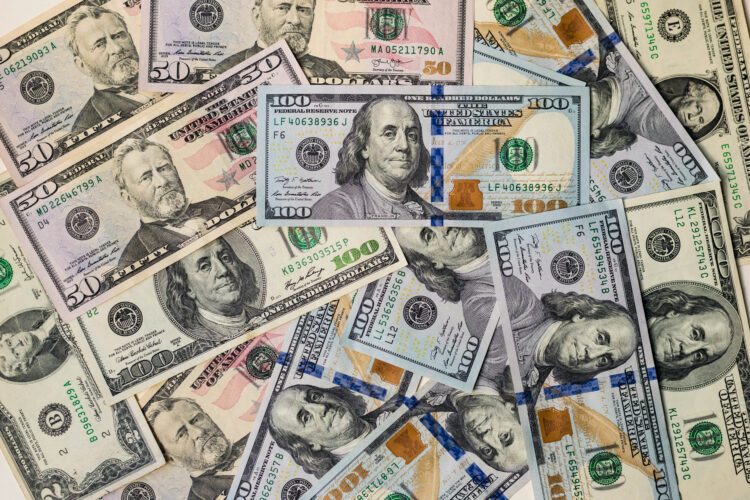Publisher: Maaal International Media Company
License: 465734
Dollar close to multi-year lows versus euro, Swiss Franc as Trump attacks the Fed
The dollar marked a fresh low against the yen and hovered around multi-year lows versus the euro and the Swiss franc on Tuesday as President Donald Trump’s attacks on the Federal Reserve raised concerns about the central bank’s independence, Reuters reported.
Analysts said the dollar was left in an especially fragile state amid market concerns over the U.S. administration’s tariffs, which could trigger a global trade war.
Doubts about Fed independence threaten the dollar’s value as a reserve currency, with some analysts noting possible divestments from what many consider over-exposure to U.S. assets.
اقرأ المزيد
The U.S. currency accelerated losses after Thailand’s prime minister said trade negotiations with Washington – scheduled to begin on Wednesday – would be postponed.
Trump ramped up his criticism of Fed chief Jerome Powell on Monday, calling him a “major loser” and demanding that he lower interest rates “NOW” or risk an economic slowdown.
On Friday, White House economic adviser Kevin Hassett said the president and his team were continuing to study whether they could fire Powell, a day after Trump said his termination “cannot come fast enough”.
Trump’s onslaught comes after Powell last week said the central bank can afford to be patient in judging how to set policy, and that rates should not be lowered until it is clearer that U.S. tariffs won’t stoke persistently higher inflation.
“The current worst-case scenario for the greenback is that Powell caves in and delivers an emergency rate cut, although that remains a low-probability event,” said Francesco Pesole, strategist at ING.
“Removing Powell from office or his resignation would have similar market effects.”
Barclays lifted its euro/dollar forecast to $1.15 based on the assessment of the removal of the Fed chair as a low-likelihood event, but argued that further revisions could therefore soon be needed should the situation escalate.
China on Monday accused Washington of abusing tariffs and warned countries against striking a broader economic deal with the United States at its expense, ratcheting up the trade war between the world’s two biggest economies.
The dollar was down 0.35% at 140.40 yen, after falling below the psychological 140 level for the first time since mid-September.
The greenback rose 0.18% to 0.8103 Swiss franc, not far from the decade-low 0.8042 reached in the previous session.
The euro fell 0.12% to $1.1498, after jumping to $1.1573 on Monday for the first time since November 2021.
The single currency dropped after Thursday’s European Central Bank policy meeting as investors increased bets on future rate cuts, pricing in 65 basis points of monetary easing by year-end from 55 bps before the ECB’s statement.
Sterling was 0.12% higher at $1.3390 after surging as high as $1.3421 for the first time since September.
Even the risk-sensitive Australian dollar climbed to a fresh four-month peak of $0.64385.
“It may take another sell‑off in the U.S. government bond market or U.S. equity market to encourage President Trump to refrain from such comments, said Joseph Capurso, head of international and sustainable economics at Commonwealth Bank of Australia, of the threats to Fed independence.
The U.S. dollar index, which measures the greenback against six other major currencies, was broadly steady at 98.33, after sinking as low as 97.923 in the previous session, a level not seen since March 2022.








